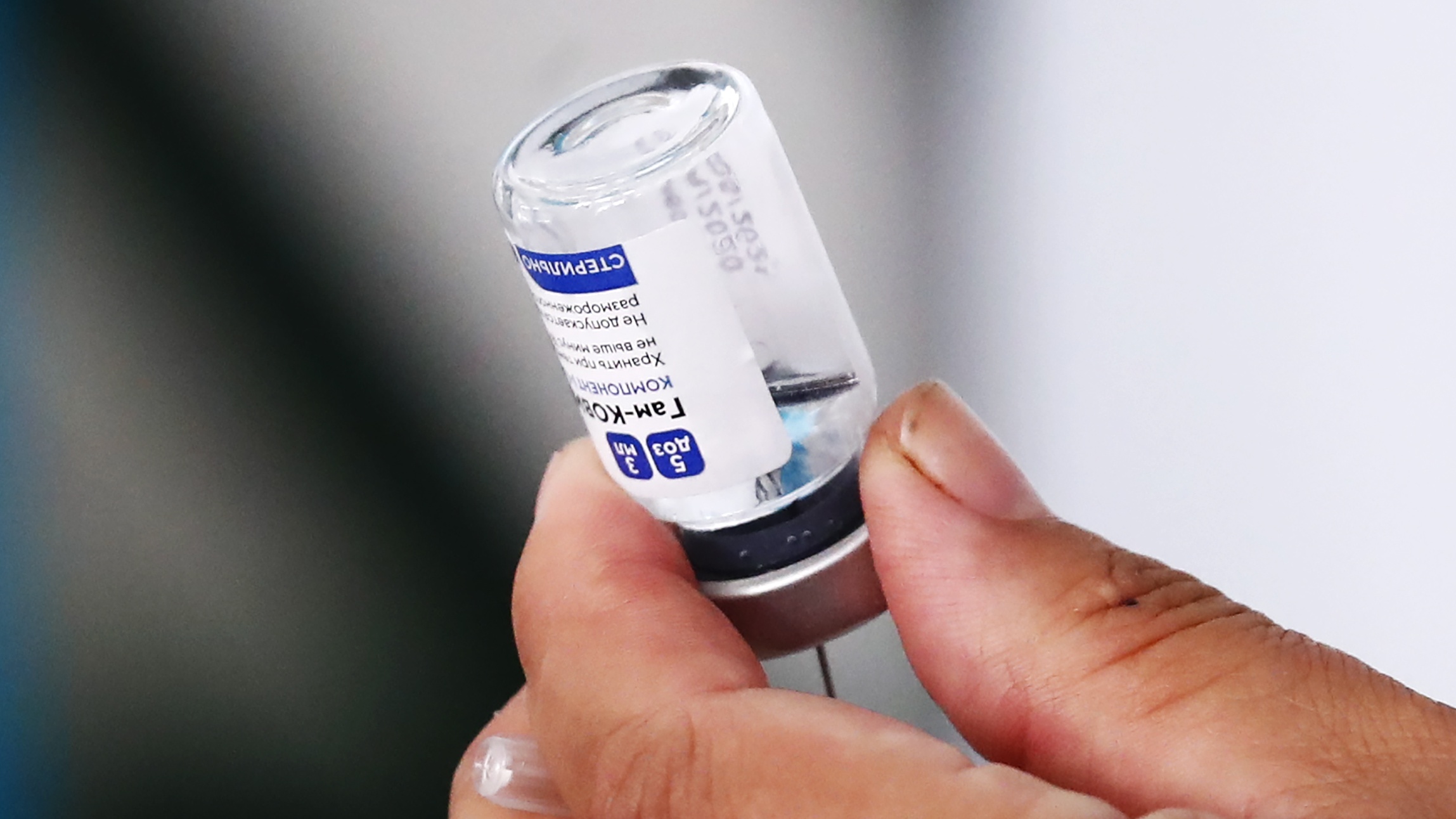Everything we know about Russia’s Sputnik V vaccine
EU leaders signal interest after tests show jab provides 92% protection against virus

A free daily email with the biggest news stories of the day – and the best features from TheWeek.com
You are now subscribed
Your newsletter sign-up was successful
European leaders are warming to the idea of rolling out Russia’s Sputnik V vaccine as new research suggests that the Covid jab’s efficacy is on a par with some of those already in use.
The large-scale study, outlined in a newly published paper in The Lancet, found that the Russian contender provided around 92% protection against the coronavirus in test subjects including older adults.
How was it developed?
The Week
Escape your echo chamber. Get the facts behind the news, plus analysis from multiple perspectives.

Sign up for The Week's Free Newsletters
From our morning news briefing to a weekly Good News Newsletter, get the best of The Week delivered directly to your inbox.
From our morning news briefing to a weekly Good News Newsletter, get the best of The Week delivered directly to your inbox.
Like the Oxford-AstraZeneca vaccine, Sputnik V is based on a modified version of a common cold virus that “is tailored to carry genetic instructions for making the coronavirus spike protein” and “triggers an immune response to protect” against Covid-19, The Guardian reports.
The vaccination was approved “with much fanfare” by the Russian government last August. However, the jab had only been tested “on a few dozen people, raising scepticism about its efficacy and safety”, and triggering allegations of “corner-cutting and an absence of transparency”, says Al Jazeera.
By contrast, the new study is based on research involving about 20,000 adults - including more than 2,100 over the age of 60 - “at 25 hospitals in Moscow between September and November, of whom three-quarters got two doses of the Russian vaccine 21 days apart and the remainder got placebo shots”, the broadcaster reports.
In a commentary in The Lancet to accompany the study paper, Professor Ian Jones, from Reading University, writes: “The outcome reported here is clear and the scientific principle of vaccination is demonstrated, which means another vaccine can now join the fight to reduce the incidence of Covid-19.”
A free daily email with the biggest news stories of the day – and the best features from TheWeek.com
Pay-off time for Russia?
The “sought-after endorsement from the scientific community” will give Moscow “new leverage” when selling the vaccine to foreign countries, says Politico.
The new study findings will also provide “reason for cheer in regions like the Middle East and South America, where some countries have approved the vaccine”, the site continues.
However, the research results will “dog EU officials trying to hold together” the bloc’s joint procurement scheme.
Will the jab be used in Europe?
Irish Deputy Prime Minister Leo Varadkar has already expressed interest in the jab, telling a parliamentary meeting of his Fine Gael party that it was “unfortunate” that the EU has yet to authorise Sputnik V.
That said, Angela Merkel is known to have spoken to Vladimir Putin about manufacturing the vaccine in the EU.
And Hungary last week became the first country in the bloc to strike a separate deal with Russia to buy doses of the jab, prior to the Lancet endorsement.
A spokesperson for Russia’s sovereign wealth fund, which is responsible for promoting the vaccine abroad, has also claimed that bilateral talks are taking place with other, unnamed, countries in the EU.
Chas Newkey-Burden has been part of The Week Digital team for more than a decade and a journalist for 25 years, starting out on the irreverent football weekly 90 Minutes, before moving to lifestyle magazines Loaded and Attitude. He was a columnist for The Big Issue and landed a world exclusive with David Beckham that became the weekly magazine’s bestselling issue. He now writes regularly for The Guardian, The Telegraph, The Independent, Metro, FourFourTwo and the i new site. He is also the author of a number of non-fiction books.